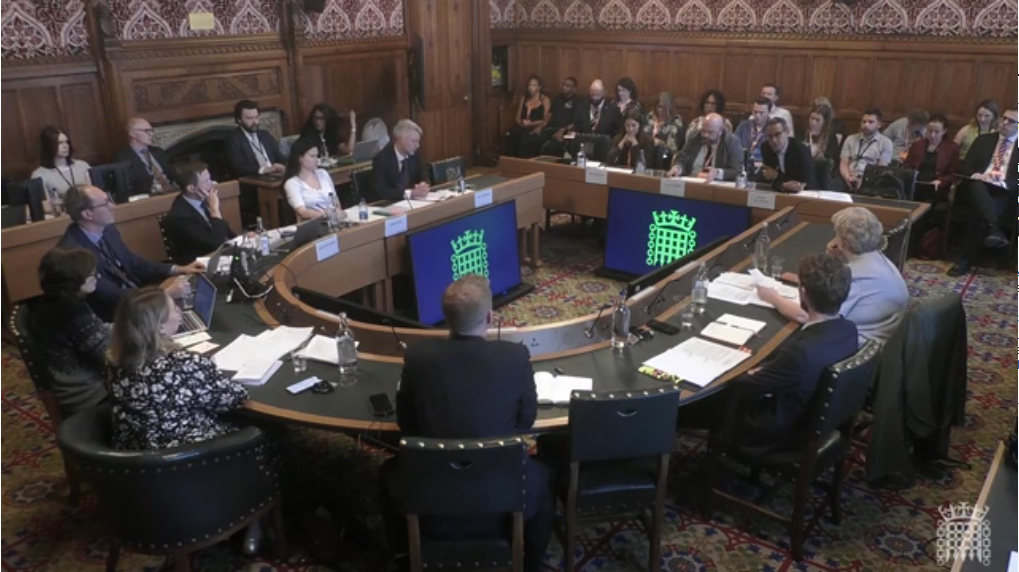
01 May DPG gives evidence to the Home Affairs Select Committee’s Inquiry into Asylum Accommodation
DPG has given evidence to the Home Affairs Select Committee’s (“HASC”) inquiry into asylum accommodation. The HASC’s inquiry is focusing on how asylum accommodation is currently delivered by the Home Office through its private contractors (Clearsprings Ready Homes, Mears and Serco), and what lessons can be learned and applied to ensure a better delivery of asylum accommodation in the future.
On 29 April 2025, Megan Smith (solicitor at DPG) gave oral evidence to the committee, highlighting the failings in the current asylum accommodation system. Megan appeared before the HASC alongside Enver Solomon, CEO of Refugee Council, and Alex Fraser, Director for Refugee Support at the British Red Cross.
Megan drew particular attention to the failure of the Home Office and its contractors to protect vulnerable asylum seekers, including children, those with disabilities, and survivors of trafficking and torture; and to provide accommodation that meets even the most basic standards. Megan identified numerous improvements that need to be made, including to the way in which the Home Office identifies, assesses and monitors the accommodation needs of individual asylum seekers, and the way in which it oversees the performance of its contractors to ensure that individuals do not suffer further harm. She emphasised the need for the Home Office to reflect on the lessons learned when considering changes to the accommodation system, including from the large-scale use of hotels and large sites such as RAF Wethersfield.
On 14 March 2025, the High Court found that the Home Secretary had acted unlawfully and in breach of her duties under the Immigration and Asylum Act 1999 by accommodating three vulnerable asylum seekers – TG, MN, and HAA – at RAF Wethersfield and that the Home Secretary had made “a most serious and inexplicable omission” in failing to assess the equalities impact when amending its asylum accommodation policy, the effect of which was that vulnerable asylum seekers with special needs or disabilities may be judged suitable to be accommodated at Wethersfield.
The British Red Cross also conducted a needs assessment of Wethersfield in March 2024 which revealed serious concerns about the impact of large-scale ex-military sites on residents, including a lack of essential safeguards and unclear safeguarding processes; regular acts of self-harm and suicide attempts across the site; inadequate mental health support, and a culture of disbelief regarding residents’ needs.
Despite significant calls for the Government to end the use of large sites, RAF Wethersfield is continuing to be used to accommodate asylum seekers including those who may be vulnerable or have in the past experienced torture, human trafficking and/or modern slavery.
You can watch the oral evidence session here.
Our written submission can be found here.
The British Red Cross’ evidence to the Committee can be found here.
